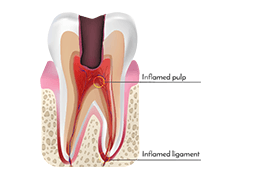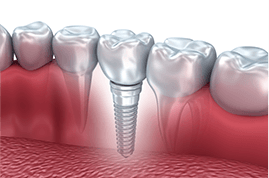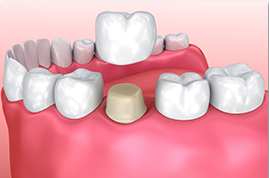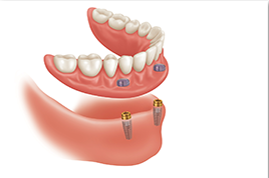Park Dental of Edmonds & Snohomish invites you to browse through some of our frequently asked questions. Our mission is to give our patients as much dental information as possible, so they can take charge of their oral health. If you have a question that is not listed below, we encourage you to call our Snohomish office at 360-568-2153 or our Edmonds office at 425-582-8921, and Dr. Kevin Park or one of our knowledgeable staff members will be happy to assist you!
Why are my teeth sensitive?
Tooth sensitivity is one of the most common dental complaints. It occurs when the hard enamel is worn down or the gums have receded, resulting in the exposure of tiny tube surfaces, which leads to nerve irritation. Pain can occur when eating or drinking foods or hot or cold beverages, touching your teeth, or exposing them to cold air.
What should I do to prevent gum disease and tooth decay?
Great oral health begins at home. Brushing teeth at least twice daily and flossing them at least once can go a long way in ensuring the health of your teeth and gums. It is also important to have a twice annual check-up with the dentist. By sticking to a good oral hygiene routine, you can greatly reduce your risk of gingivitis or tooth decay.
What is gingivitis?
Gingivitis is an inflammation of the gums, typically caused by a bacterial infection. Left unchecked, it can cause the gums to separate from the teeth. Gingivitis can be prevented by proper and consistent oral hygiene.
What is periodontal disease?
Periodontal disease ranges from simple gum inflammation (gingivitis) to a serious disease that can be detrimental to the soft tissue and bone that support the teeth. In the worst cases, teeth are lost. Symptoms include swollen, tender, and red gums.
How do you treat periodontal disease?
The primary goal of periodontal treatment is controlling the infection. Treatment varies depending on the severity of the disease. One form of treatment is a deep-cleaning method called scaling and root planing. Medications may also be used in addition to scaling and root planing. Another less common form of treatment is surgery. A dentist may perform flap surgery to remove tartar deposits in deep pockets or to reduce the periodontal pocket, making it easier to keep the area clean.
What is the difference between a composite and a silver filling?
Amalgam fillings, commonly known as silver fillings, have been around for over 100 years. Amalgam consists of a mixture of metals, made up of liquid mercury and a powdered alloy composed of silver, tin, and copper. Silver fillings are incredibly strong and long-lasting, so they are less likely to break than some other types of fillings. They are also the least expensive type of filling material.
A composite, or tooth-colored, filling is a popular choice among many patients due to the fact that it seamlessly blends with the natural tooth. It is made up of a plastic and glass mixture. Composites are also used for cosmetic enhancements of the smile by changing the color of the teeth or reshaping disfigured teeth.
How can I improve my smile’s appearance?
Park Dental of Edmonds & Snohomish offers a variety of cosmetic services to improve the aesthetics of your smile. Options include:
- Teeth whitening
- Dental bonding
- Porcelain veneers
- Porcelain crowns
For a personalized consultation, we invite you to contact our office, so Dr. Kevin Park can provide you with a customized treatment plan.
What is teeth whitening?
Teeth whitening brightens the teeth and helps remove stains and discoloration. There is a variety of teeth whitening options available including in-office whitening. This method involves the carefully controlled application of a relatively high-concentration peroxide gel. Professional, take-home whitening kits are another great teeth whitening option. Take-home kits contain a lower-concentration peroxide gel that remains on the teeth for an hour or longer, sometimes overnight. Contact Park Dental of Edmonds & Snohomish today to learn about our professional teeth whitening options!
What is dental bonding?
Dental bonding is a cosmetic procedure in which a tooth-colored, durable plastic material is applied to the tooth and sealed with a special light, ultimately “bonding” the material and restoring your smile. Dental bonding is used for a variety of reasons, including to improve the appearance of chipped, cracked, decayed, or stained teeth. It can also close spaces between teeth and change the shape of teeth. Its benefits are numerous!
What are porcelain veneers?
Porcelain veneers are very thin shells that are bonded to the front of your teeth to transform your smile. They are an excellent way to change the shape, size, or color of your teeth. Veneers made of porcelain are an especially ideal choice because they resist stains better than other veneer types and better mimic the light reflecting properties of natural teeth.
What are crowns?
Dental crowns are tooth-shaped caps that go over the teeth in order to restore their shape and size.
What are dental implants?
Dental implants are metal posts that are surgically inserted into the jawbone beneath the gums. These metal posts then provide stable support for artificial teeth.
What are the benefits of dental implants?
- Dental implants look, feel, and function like natural teeth.
- Dental implants are stable, secure, and can last a lifetime.
- Dental implants can restore your natural face shape and smile.
- Dental implants stimulate bone growth and prevent bone loss.
Who is a candidate for dental implants?
In order to receive dental implants, you have to have healthy gums and enough bone to support the implant. You also must strive for good oral hygiene and regular dental visits. Heavy smokers, people suffering from uncontrolled chronic disorders such as heart disease or diabetes, or patients who have had radiation therapy to the head/neck area will have be evaluated on an individual basis.










